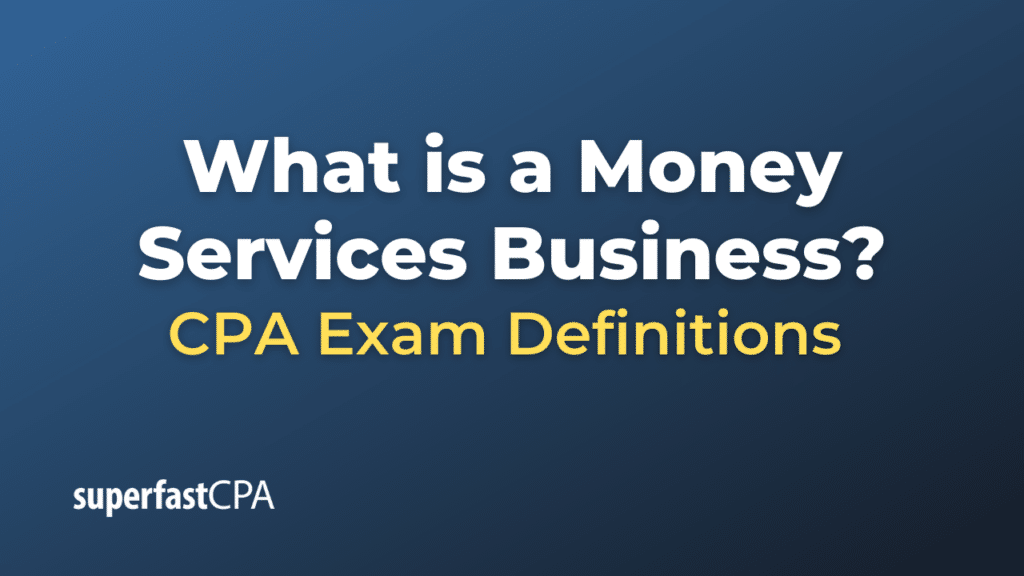Money Services Business
A Money Services Business (MSB) is a legal term used by financial regulators to describe businesses that transmit or convert money. The exact definition varies by jurisdiction, but MSBs typically include the following types of businesses:
- Currency dealers or exchangers.
- Check cashing services.
- Issuers of traveler’s checks, money orders, or stored value (like prepaid cards).
- Sellers or redeemers of traveler’s checks, money orders, or stored value.
- Money transmitters.
- U.S. Postal Service (under certain circumstances).
MSBs are subject to regulatory requirements to prevent money laundering and fraud. In the United States, for example, MSBs are required to register with the Financial Crimes Enforcement Network (FinCEN), a bureau of the U.S. Department of the Treasury, and to comply with anti-money laundering (AML) rules.
MSBs provide important financial services, especially in areas underserved by traditional banks. However, because their services can be used to disguise the origins of money (money laundering) or finance illegal activities, they are closely regulated and must implement strong controls to prevent misuse.
The rise of digital currencies and financial technologies has expanded the scope of what may be considered an MSB, and regulators are adapting their rules accordingly. Cryptocurrency exchanges, for example, may fall under the definition of an MSB in certain jurisdictions because they offer money transmission services.
Example of a Money Services Business
Western Union is an example of a Money Services Business (MSB). It provides several financial services that fall under the MSB category:
- Money Transfers: Western Union allows customers to send money to people in different parts of the world. This could be for family financial support, emergency situations, or remittances from migrant workers sending money home.
- money orders: Western Union also provides money order services. A customer can purchase a money order to make a payment to a third party.
- Bill Payments: They offer services to pay bills such as utilities, mortgages, car loans, and more, especially for those who might not have access to a traditional bank account.
To comply with regulations, Western Union has an anti-money laundering (AML) program in place. They are required to verify the identities of their customers, monitor transactions for suspicious activity, report large transactions, and maintain records for a specific period of time. In case of any suspicious activities, they are required to report to the financial regulatory authorities.
This is just one example of an MSB. Others could include check cashing stores, foreign currency exchange businesses, prepaid card providers, and even some online payment platforms and cryptocurrency exchanges, depending on the regulations in their specific jurisdictions.













